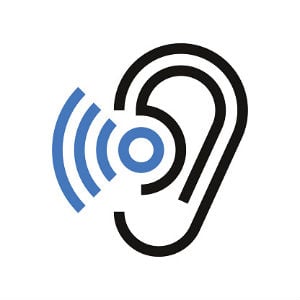Hearing loss can happen to anyone, at any age, but is one of the most common conditions affecting older adults, according to the National Institute on Deafness and Other Communication Disorders (NIDCD). Defined as a sudden or gradual decrease in hearing ability, about one in three people between the ages of 65 and 74 have some hearing loss; nearly half of those ages 75 and up face challenges in hearing.
Meanwhile, The New York Times found that 30 to 48 million older adults have significant hearing loss, and many of them may not realize how much hearing loss they have—or how much it’s affecting them academically, professionally, medically or socially.
Don’t Delay
Most older adults wait five to 15 years to seek help, according to The New York Times; but, the sooner the issue is addressed, the easier it is for the brain to use auditory pathways intended for processing sound.
Reasons for the delay, according to the National Council on Aging, include:
- They don’t feel the hearing loss is bad enough yet
- They believe that they can get along well enough without treatment
- Hearing loss makes them feel old
- They don’t like what others may think of them if they sought treatment
Waiting, though, comes with risks, including an increased risk of fatigue, stress and headaches, with diminished ability to enjoy eating, sleeping and sex. There may be increased anger and embarrassment, and suffering from a loss of self-esteem. There is evidence of increased risk of dementia because of lowered cognitive input, and greater risk of death. Moreover, friends and family members feel frustrated, annoyed and sad over the communication misunderstandings, leading to less human bonding.
While hearing loss may not yet be preventable, seeking early treatment is 100 percent within your control.
Hearing Loss Checklist
To find out if you have a hearing loss, the NIDCD provides a list of questions. If you answer “yes” to three or more, see your primary care physician to discuss your hearing status. He or she may send you to one of the following:
- Otolaryngologist, specializing in “diagnosing and treating diseases of the ear, nose and throat”
- Audiologist, specializing in “identifying and measuring the type and degree of hearing loss and recommending treatment options” and perhaps fitting a hearing aid
- Hearing aid specialist
Treatments
NIDCD lists the following:
- Hearing aids. These electronic devices go either in or behind your ear to amplify sound; you may need to experiment with more than one to find the right one, so ask your hearing specialist for guidance.
- Cochlear implants. These devices are surgically implanted in inner ears, intended for people with significant hearing loss.
- Assisted listening devices. Devices amplify sounds on telephones and mobile devices, while induction coil loops can make it easier to hear in “places of worship, theaters and auditoriums.”
- Lip reading. Some people are helped by paying close attention to how a speaker’s “mouth and body move.”
Friends and Family
For people to help you, they need to be aware of your hearing loss, so clearly explain your challenges to loved ones. Also:
- Ask them to face you when speaking and to speak more loudly without shouting. Let them know they don’t need to talk more slowly.
- Ask them to turn off radios and televisions if they aren’t actively listening to them.
- Sit in quieter places in restaurants, for example, to avoid background noise.
More Information
Here is a directory of national organizations provided by the NIDCD.













